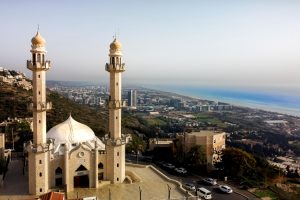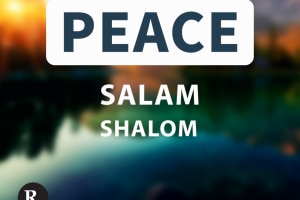
Fazal Ahmad, UK
Sunday 17 January 2021 marks World Religion Day, and is even more poignant today. The last 12 months through the COVID-19 pandemic has shown the frailty of society, even in the more industrialised and higher income regions where economies, travel, sport and most forms of social interaction have come to a halt, and where the healthcare infrastructure is under unprecedented strain outside of a war setting.
Social interactions have largely become virtual, and the growing sense of despair, isolation, loneliness, frustration and panic is leading to a tsunami of mental health issues. The virus has also highlighted the wealth disparities and poverty in every country, whether in cities, towns or rural areas. The progress that we thought we were making against the UN Sustainable Development Goals (SDGs) may be being undone to some extent in areas of food security, poverty and global healthcare.
Conversely, the cries for urgent action on the climate from a year ago have now seen a positive change as an unintended consequence of the pandemic.
In this context, the role and need for religion and to understand our position in the universe, and with our Creator has come into sharper focus. There is now a growing wealth chasm between the rich and poor, yet Islam provides a blueprint to help us eradicate poverty and food insecurity.
There have been so many positive accounts of people volunteering to support their families, neighbours, homeless people, the disabled and other vulnerable groups. In many areas, societies are re-connecting and families are also re-connecting through the virtual boom.
Nations too need to take care and work on the basis of truth honesty, fairness and justice. Just as they expect their citizens to be kind and practise forgiveness at this difficult time, they need to adopt the same in their international affairs. Where there are tensions, our leaders need to practice tolerance and de-escalate conflicts and eradicate persecution at the local, national and global level. Hazrat Mirza Masroor Ahmad (aba), at an address in Toronto in 2016, guided leaders on shaping policy based on the principles of justice and integrity to prevent conflicts. Similarly at a Peace Conference that same year, he defined the prerequisites to create peace and said:
‘… a person should offer sympathy and compassion and be willing to serve others without any expectation, just as a mother serves and selflessly nourishes her child without any desire for reward or recompense. This is the altruistic and benevolent spirit that Islam advocates and teaches, wherein it calls on Muslims to open their hearts for the good of mankind. If acted upon, this golden principle will knock down the walls of hatred that have been erected all around us. It will shatter the barriers that divide mankind. It is the key to peace at a personal level, within the wider society and at an international level.‘

All religions have similar concepts about their Creator, the purpose of life, life after death, our place in the Universe, sacrifice and many other concepts that help us to regulate society for the greater good.
Religion plays a key role in society, especially at difficult times like these and provides solace and hope for the lonely and those who are suffering hardship. All true religions emanate from the same source and have the same basic characteristics. They teach about mutual respect and compassion for all mankind, as articulated by the Promised Messiah (as) over a century ago. Islam teaches respect for all faiths and prophets, and that prophets have been sent to all tribes and nations. We respect all great prophets from around the world including Abraham, Moses, Confucius, Gotama Buddha, Socrates, Guru Baba Nanak, David, Jesus and all of the other great personalities of religion around the world.
If we search among traditional religions such as those in Africa, Central America or Australia, we find the same basic tenets hidden in folklore and mythology.
Now, more than ever, mankind needs religion to bring communities together in mutual love and co-operation to get through this crisis and to create and safer and fairer world.
About the Author: Fazal Ahmad is the Editor for the ‘World Religions’ section of The Review of Religions. He has travelled across the world to over 48 countries, studying world religions. He has been part of The Review of Religions for 28 years.




Add Comment